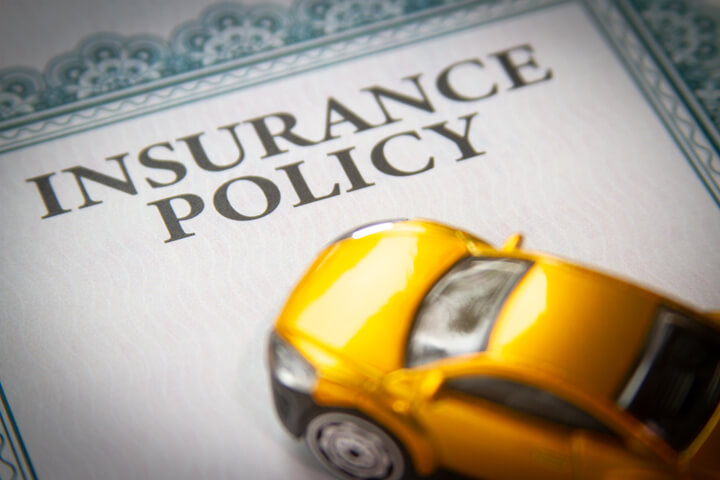Dealing with the aftermath of a Pennsylvania car accident is stressful and exhausting. Sadly, many accident victims have to deal with the added stress that comes from their insurance carrier acting in bad faith.
While insurance companies spend billions of dollars on advertising, touting how trustworthy they are and what a deep commitment they have to their customers, it’s a different story when it comes to covering an accident claim. That’s when consumers quickly realize that the insurance company they entered into a contract with is now acting in bad faith and doesn’t want to follow through on their promises.
Following a Pennsylvania car accident, it’s common for insurance adjusters to downplay the cost of an insurance claim or deny it completely, even when they know the claim is valid and covered by the insurance policy.
A Pennsylvania Bad Faith Insurance Lawyer Can Hold Your Insurance Company Accountable
Suppose your Pennsylvania insurance company denies your rightful accident claim. In that case, a bad faith insurance lawyer can help protect your rights as a consumer and help you obtain the compensation that is owed to you.
Insurance companies and their adjusters are legally obligated to act in good faith, but that doesn’t stop them from minimizing accident claims and denying them altogether.
Car accident insurance companies are concerned with their profit and bottom line. That’s why they employ deliberate tactics to line their pockets and take money away from the people they claim to protect. That is a problem not just in Pennsylvania but throughout the country.
Anytime an insurance company enters into a contract with you and then later denies services initially offered, that constitutes acting in “bad faith.” When Pennsylvania car insurance companies act in bad faith, they may be held liable, both for compensation owed to you as well as for punitive damages.
Common Pennsylvania Bad Faith Auto Insurance Tactics
There are several tactics that an auto insurance company will use to reduce or issue an outright denial of compensation owed to you.
These tactics are as follows:
- Claim Delays Tactics: A Pennsylvania car accident insurance company might slow down the claims process while working behind the scenes to reduce the money owed or deny it outright. This tactic prevents you from getting the funds owed to you in a timely fashion. As an accident victim knows, getting your hands on that money sooner than later is crucial to getting your life in order after an accident.
- Shady Investigation Tactics: Watch out for insurance companies that end their investigations early, especially if it can work in their favor. If there is evidence that your insurance company failed to investigate your claim fully and completely, you may be able to file a lawsuit.
- Threatening Tactics: Unfortunately, insurance companies will sometimes threaten their customers with legal action for failing to accept a lowball settlement offer or even for filing a claim in the first place.
- The Lowball Settlement Tactic: Pennsylvania auto insurance companies love to lowball. It is not uncommon for an insurance company to take advantage of their customers’ lack of experience and attempt to maximize profits through a lowball settlement offer. The good news is, however, that there are laws requiring auto insurance companies to offer fair insurance settlements. As you can imagine, that doesn’t always stop the insurance companies from trying to game the system.
These are just a few tactics auto insurance companies use to prevent Pennsylvania drivers from getting fair compensation after a covered accident. All over the country, drivers are paying for insurance products that they believe will cover them in an accident, only to find that the insurance company has fleeced them
The expert team at Thistle Law has insider knowledge of the auto insurance industry. Daniel Thistle is well aware of these companies’ nefarious bad faith tactics. Based on that experience, the company has compiled a list of the ten worst Pennsylvania car insurance companies.
Responding to a Lowball Insurance Settlement Offer
When you receive a settlement offer from an insurance company, do not accept it right away. Take your time reviewing the offer, comparing it to your records, and determining that it will sufficiently cover all your costs. Only then should you respond.
Pennsylvania drivers have the legal right to reject an insurance company’s offer and respond with their own counteroffer. If you choose not to settle, respond to the insurance company’s offer in writing, using a formal business letter format, and include the following information:
- Why the offer is unacceptable to you.
- An outline of all false or incorrect statements made by the insurance company.
- Proof of false or inaccurate statements through receipts, records, or other evidence.
- A counteroffer.
- A statement of why you believe that the counteroffer is appropriate.
While this process can certainly be done on your own, you should hire a Pennsylvania car accident injury lawyer to help you negotiate with the insurance company.
A lawyer can assist you in responding to lowball offers from the insurance company. In certain cases, particularly if negotiations stall, that attorney can help you proceed with a lawsuit. But, simply having an attorney draft your response letter can significantly change how the insurance company responds to your claim.
Pennsylvania Insurance Bad Faith Lawyers Can Help
If you or someone you love has been taken advantage of by a Pennsylvania auto insurance company acting in bad faith or sending you a lowball settlement offer, you should contact an experienced insurance lawyer immediately.
Insurance companies will do everything they can to limit legitimate claims and have a team of attorneys at their beck and call. Shouldn’t you?
At the Thistle Law Group, we know how to hold car insurance companies accountable while getting you the compensation you deserve.
Please fill out our contact form or call a team member at 1-800-681-3550 for a free consultation.


